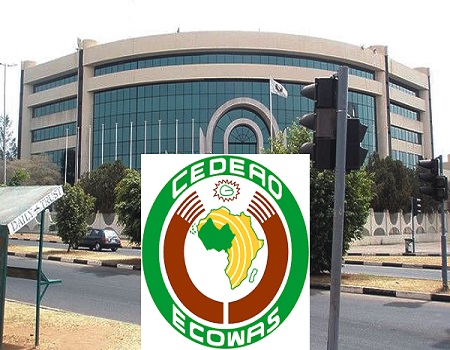19.4million Nigerians Will Face Food Crisis By August ― ECOWAS
About 19.4 million Nigerians will face food crisis, and nutrition insecurity by August, Executive Secretary, ECOWAS Rice Observatory, Dr Boladale Adebowale has said.
The crisis, according to Adebowale, is being fuelled by the fact that crop production is not meeting population growth, while the nation’s agricultural sector is threatened by insecurity, adverse weather conditions, and climate change.
She added that the bane of food insecurity also includes being characterised by low mechanisation, poor seed quality and varieties, low access to agric credit, low agro-processing capacity, low investment in agricultural research, high prevalence of systemic inefficiencies and low productivity.
To reverse the trend, she noted that nation must implement strategies to ensure that crop production increases by 30 per cent in the next two years.
Adebowale stated these while delivering the fourth Grace Foundation Day Lecture titled: “Can Nigeria Achieve Food Security in 2023?” at the International Conference Centre, University of Ibadan.
On increasing production, she advocated for sector-focused actions, adoption of a value chain approach, and climate-smart methods for the nation’s agric and food systems such that Nigeria prioritises key crops.
Furthermore, she noted the need for the nation to improve on its irrigation strategy, and have a development agenda at the core of its agric programmes.
In having a development agenda for the sector, Adebowale charged actors to engage with the private sector for sustainability, have a change in policy orientation and establish new partnerships cum networks in the agric sector.
In his remarks, President, Grace Leadership Foundation, Ibadan, Mr Bola Olowe noted that the nation was in a state where there is an urgent need to restore its agricultural fields, rice and groundnut pyramids, and cocoa fields among others.
Olowe bemoaned that hunger, and abject poverty had become a fact of life and daily experience in Nigeria, a situation worsened by inflation and a fast-disappearing craving for farming.
Legal practitioner, Kunle Kalejaye, who chaired the occasion, chided the federal government for failing to arrest the rising cost of food items, insecurity, and lack of a conducive environment for farming.
Rather than addressing food insecurity, Kalejaye bemoaned the present expenditure of huge financial resources on the purchase of nomination forms and politicking.
Other participants at the event including the former Deputy Vice-Chancellor, University of Ibadan, Professor Ambrose Aiyelari noted that addressing insecurity is critical if the nation is to achieve food security.
General Overseer, Word Communication Ministry (WOCOM), Apostle Sunday Popoola said addressing the challenge of leadership is critical to fixing the nation’s problems.
He, however, declared that the situation was not completely hopeless, calling for more prayers for the nation.
Other attendees at the event included Vice Chairman, Board of Trustees, Grace Leadership Foundation, Professor Foluso Okunmadewa; wife of the President, Grace Leadership Foundation, Mrs Kemi Olowe.















Post Comment